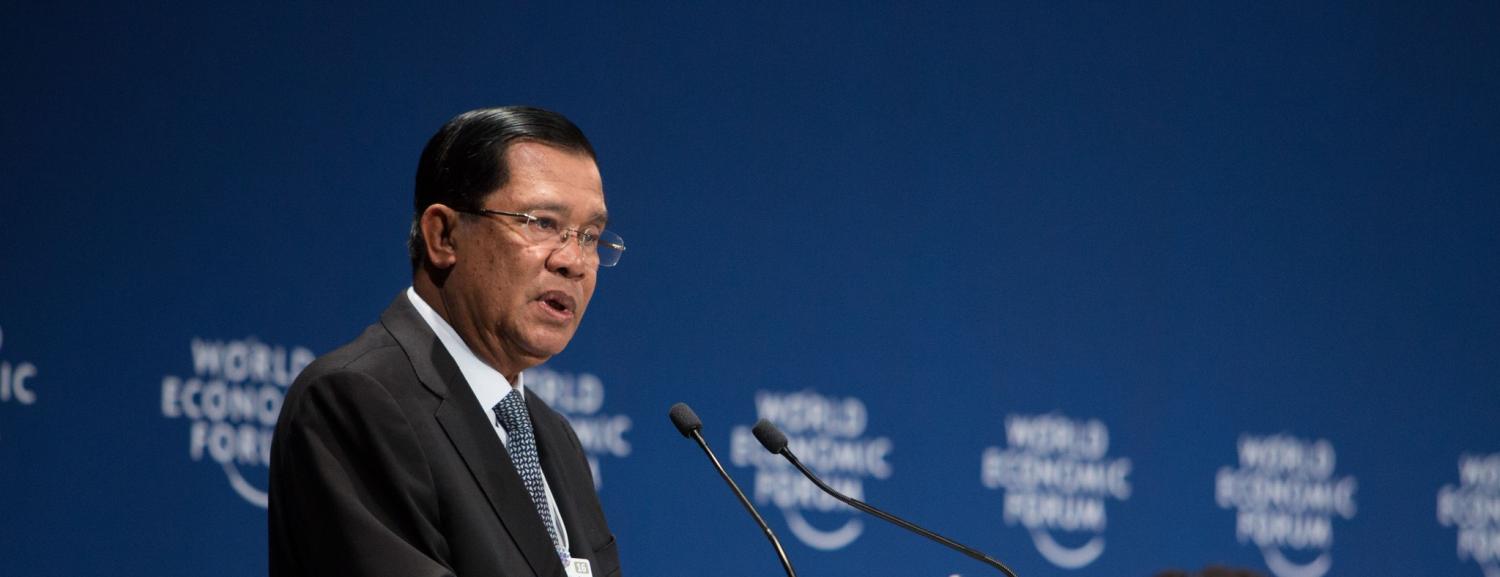Cambodian Prime Minister Hun Sen often criticises those he sees as his political enemies but even seasoned observers have been puzzled by his recent attack on English-language newspaper the Cambodia Daily, which he claims owes the government a tax bill of US$6.3million.
Once published with the quiet support of the late Cambodian ruler Norodom Sihanouk, the Daily (like the Phnom Penh Post) appeared to be given something close to free rein to publish stories that might be embarrassing for the government, on the basis that neither newspaper was read outside a limited audience (Lee Kuan Yew took the same point of view in relation to the availability of BBC World Service broadcasts on FM radio in Singapore). The reporting of the current issue involving The Daily in the Phnom Penh Post makes this point. It canvasse the tax demand but also refers to Hun Sen’s criticism of NGOs and the activities of the EU support for election monitors in the recent commune elections.
So what is going on? The most obvious answer is that the Prime Minister is preparing for next year’s national elections, which means that he is determined to undermine, denigrate, and if possible punish all those whom he identifies as political enemies. Just where the Daily fits in with this characterisation remains unclear – the obvious targets naturally include the opposition CNRP, international NGOs and the United States, with the latter making what seems to many an incredibly ill-judged demand for the repayment of debts incurred by the Cambodian government in the 1970s.
For what it is worth, I offer the following comments on current developments on the basis of a very brief visit to Phnom Penh last month (which follows annual visits over the past 10 years), and the assessments that I was given by a limited number of long-term observers of Cambodia politics.
Hun Sen and his CPP colleagues are indeed concerned that they could lose the 2018 election, given the better showing of the CNRP in the 2013 elections and the decline in the CPP’s vote in this year’s commune elections (a decline, it should be noted, that still left the CNRP far from achieving what it hoped for). The government’s concerns mean that the CPP is seeking to re-establish its previously strong hold on provincial voters with increased attention to the needs of the rural population. This was evident in travel in the countryside by comparison with what I saw with similar travel last year – CPP branches spruced up, village clinics given new supplies, and a greater presence of CPP logos.
The CPP government’s concern for the future plays into a deep resentment among its leadership (and on the part of Hun Sen in particular) over the extent to which they feel Cambodia is being singled out for international criticism.
The government is inured to disapproval of its readiness to act as China’s proxy in ASEAN discussion of South China Sea issues. After all, Cambodia’s economy is deeply dependent on Chinese aid in its many forms. Rather, what deeply annoys Hun Sen and his associates is their impression that other Southeast Asian countries are given a pass on human rights issues and the disregard of the norms of democratic government. Why, they ask, was the murder of Kem Ley given such prominence in international commentary, while President Rodrigo Duterte of the Philippines is only lightly admonished for the policies he pursues in seeking to suppress that country’s drug trade? What is it about Myanmar that shields it from receiving the same degree of criticism that is levelled at Cambodia? Why is corruption in Cambodia so often treated as an issue when Malaysia appears to held to a different standard in relation to the 1MDB scandal?
Now the point could and should be made that in each of the cases just mentioned, and others, there has most certainly been international criticism of the abuses and policies of other countries. But this is now how Hun Sen and his ministers see the situation.
So while the CPP rails against its ‘enemies’ and seeks to redress the balance of youth support that was evident in the 2013 elections, it has to confront what still seems the unlikely possibility that next year it could lose. No seasoned observer with whom I discussed this prospect discounted the readiness of Hun Sen to refuse to accept defeat. This is an issue that I discussed in some detail in my Interpreter post of November last year.

